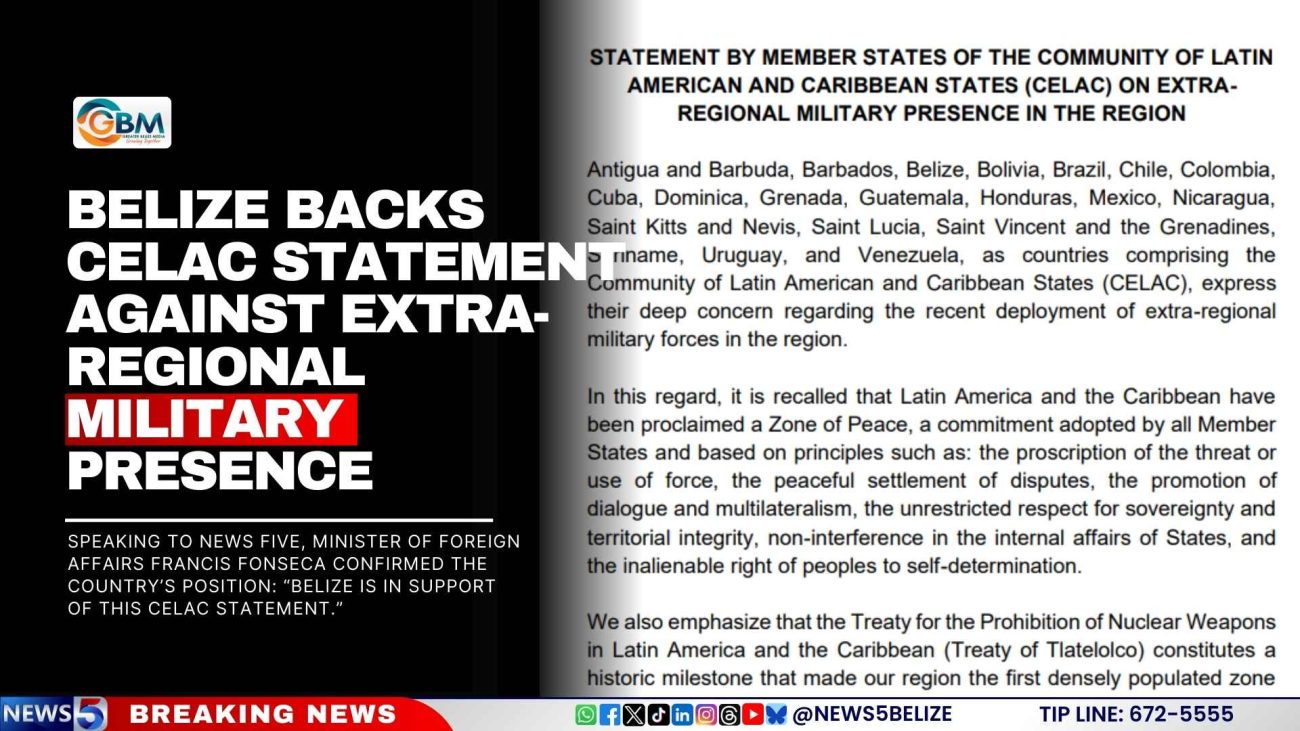Belize Backs CELAC Statement Against Extra-Regional Military Presence
Belize has joined a collective of Latin American and Caribbean nations in voicing concern over the deployment of extra-regional military forces in the region. The statement, issued by the Community of Latin American and Caribbean States (CELAC), was signed by 19 member states, including Belize, Brazil, Mexico, and Uruguay.
In the declaration, the countries reaffirmed Latin America and the Caribbean as a “Zone of Peace,” stressing principles such as the prohibition of the use of force, peaceful settlement of disputes, respect for sovereignty and territorial integrity, non-interference in internal affairs, and the right of peoples to self-determination.
The statement also underscored the historic importance of the Treaty of Tlatelolco, which established Latin America and the Caribbean as the first densely populated region free of nuclear weapons. CELAC members highlighted that this reflects the region’s commitment to peace, collective security, and rejecting nuclear arms as a tool of coercion.
Acknowledging challenges such as organized crime and drug trafficking, CELAC countries reaffirmed their will to prioritize the fight against these threats through stronger cooperation and coordination, while respecting international law.
Speaking to News Five, Minister of Foreign Affairs Francis Fonseca confirmed the country’s position: “Belize is in support of this CELAC statement.”
President of Colombia, Gustavo Petro posted on X, “This is the statement from the vast majority of CELAC members, who signed for peace in Latin America and the Caribbean. It is not a CELAC statement because a minority, I might add, opposed it.”
Meanwhile, Guatemala said it did not sign the document. It stated on X, “The Government of the Republic of Guatemala, through the Ministry of Foreign Affairs, informs that Guatemala has not endorsed the communiqué recently released by the Pro Tempore Presidency (PPT) of CELAC.”
The U.S. is deploying ten F-35 fighter jets to the Caribbean to target drug cartels, amid escalating tensions with Venezuela. The move follows a deadly U.S. strike on suspected traffickers and the earlier deployment of three Navy destroyers near Venezuelan waters.
This week, two Venezuelan F-16s flew over one of the U.S. warships in a show of force.






Facebook Comments